Affiliate disclosure: This post may contain affiliate links. Please see our Privacy Policy.
Preserving eggs is an old fashioned skill and it’s making a comeback as more people take up raising chickens in their backyards. Believe it or not, there are literally dozens of ways to preserve eggs (both historical and modern).
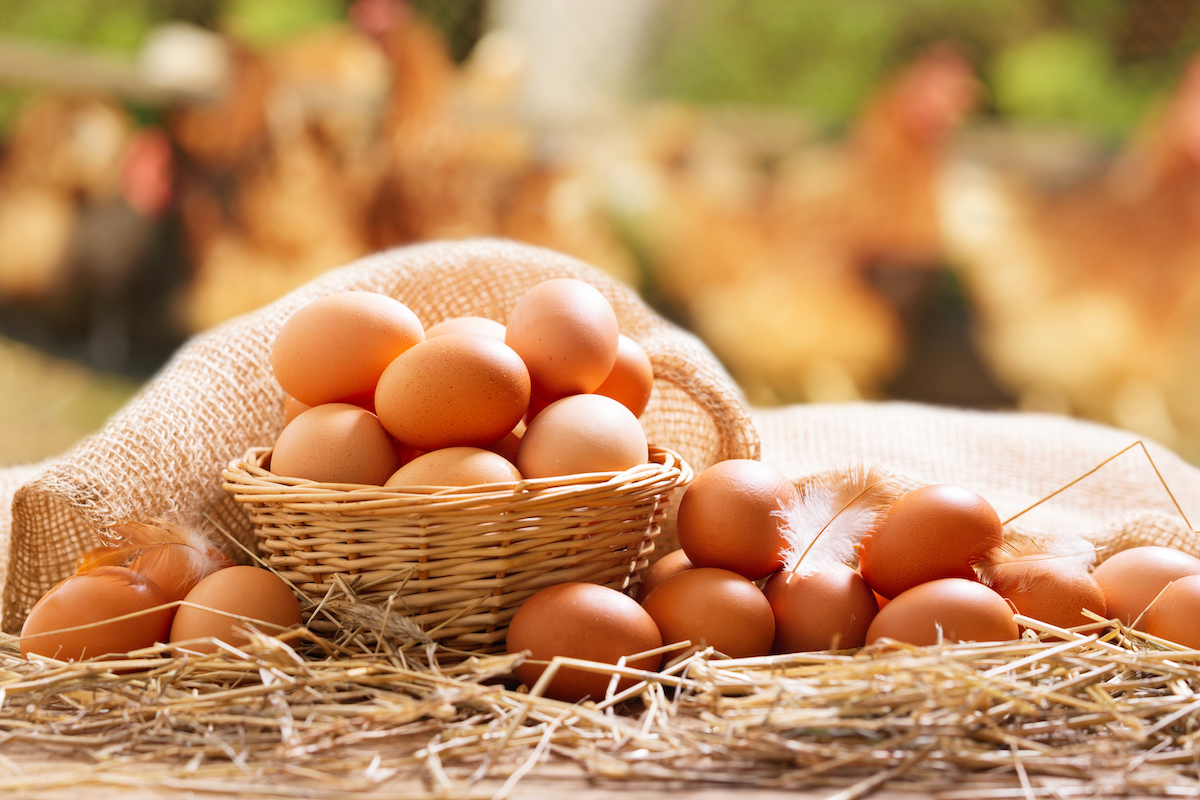
Table of Contents
- Preserving Eggs by Freezing
- Preserving Eggs by Dehydration
- Fermented or Salt Cured Eggs
- Fermented Eggs
- Salt Preserved Egg Yolks
- Chinese Salt Preserved Eggs (Whole Raw Eggs)
- Thousand Year Eggs
- Egg White Yogurt (Eggert)
- Preserving Eggs in Alcohol
- Preserving Eggs By Pickling or Canning
- Pickled Eggs
- Preserving Eggs in Canned Lemon Curd
- Old Time Homestead Egg Preservation Methods
- Mineral Oil Coated Eggs
- Preserving Eggs with Butter or Lard
- Preserving Eggs with Vaseline
- Water Glass Eggs
- Preserving Eggs in Lime
- Preserving Eggs in Isinglass
- Preserving Eggs in Peat Moss
- Preserving Eggs in Wood Ash
- Preserving Eggs in Oats or Bran
- Wax Preserved Eggs (Paraffin or Beeswax)
- Preserving Whole Eggs in Salt
- Other Old Homestead Immersion Methods
- Theoretical Egg Preservation Methods
- Other Egg Preservation Methods?
While you wouldn’t know it looking at the grocery store shelves, egg production is seasonal. Preserving eggs was essential back before grocery stores were the source of all things and just around the corner.
In the depths of winter, chickens slow their laying habits, and most breeds stop altogether.
Then in spring, production turns on again and backyard chicken keepers are struggling to find more ways to use up eggs. Spring egg production usually peaks in late March and early April, right around Easter time.
There’s a good reason that egg hunts and egg heavy dishes are traditional for Easter!
Learning how to preserve eggs during times of plenty ensures a year-round supply of homegrown eggs, and will allow you to even out production over the course of a year. No more wasted eggs!
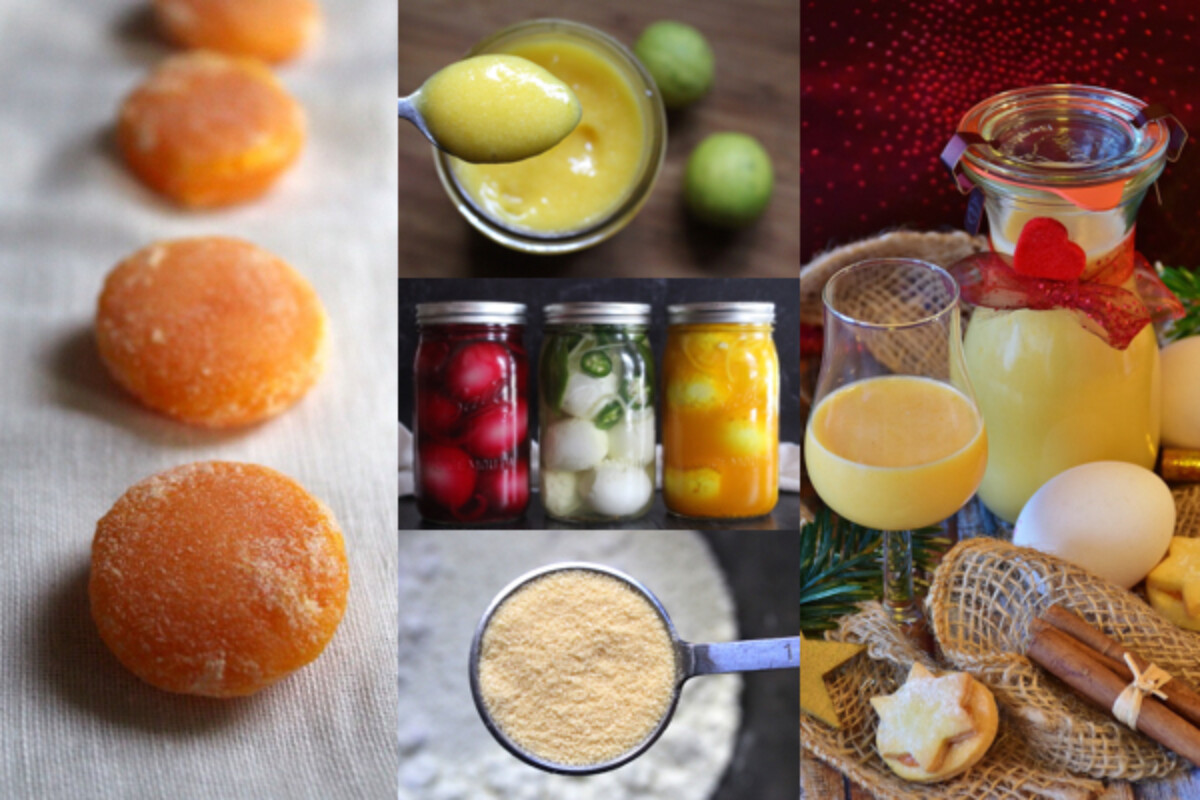
A few years ago we had a flock of two dozen birds that kept us supplied with both eggs and meat year-round. Much of the year they’d lay just enough to keep our family in fresh eggs, but in the spring things changed. Every one of them worked overtime producing eggs as the days grew longer.
The eggs would pile up on the counter, and we struggled to find ways to use them. Putting our creativity to work, we came up with all sorts of egg heavy recipes, including a truly spectacular brownie recipe that uses 8 large eggs. Still, there’s only so many brownies you can eat and pound cakes you can freeze. At some point, there are just too darn many eggs.
It seems a shame, when in the winter months you’re rationing the few eggs the birds are laying. Historically, they must have had a solution for this? How else would they have been able to do holiday baking, right when the birds have mostly stopped laying for the winter?
It turns out, there are many ways to preserve eggs. Some work better than others, and we’ve tested out quite a few looking for the perfect egg preservation solution. We’re not the first to test out different methods, science has been at this for a long time. A consumer reports pamphlet from 1897 tested 20 different methods for preserving eggs. The summarized their results:
“Of those preserved in limewater, water glass, or varnished with vaseline all were good; of those treated with permanganate of potash, or with boric acid and water glass, or packed in wood ashes, or in peat dust 20 percent were bad; of those varnished with shellac, collodin, or water glass 40 percent were bad; of those submerged in salicylic acid, treated with alum, or sterilized 12 seconds in boiling water 50 percent were bad; of those rubbed with salt, packed in brine, covered with paraffin or varnished with glycerin and salicylic acid 70 percent were bad; of those wrapped in tissue paper or preserved in salicylic acid and glycerin 80 percent were bad; and of those preserved in salt water all were unpalatable, as the salt had penetrated the eggs. (source)”
It’s interesting to note that of the 20 methods tested over 100 years ago, almost all worked at least partially. In the past 100 years, there’s been further innovation and there are actually quite a few more egg preservation methods to try.
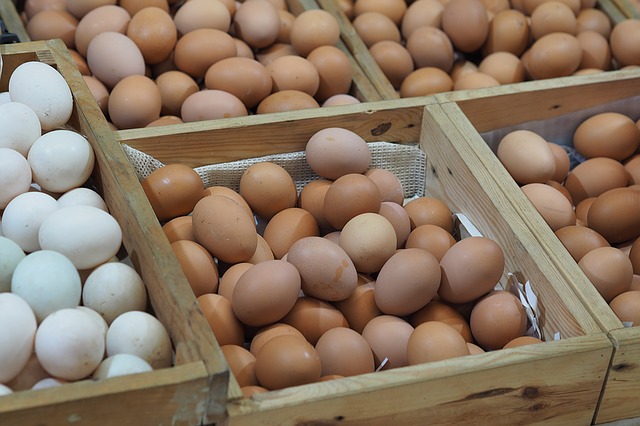
Keeping Eggs Cool (Root Cellaring Eggs)
The simplest solution to preserving eggs is to simply keep them cool. Eggs have a natural coating on the outside that helps keep the egg inside from spoiling. If that’s washed off, the eggs must be refrigerated.
Unwashed eggs, however, can be stored in a cool closet or back room for weeks. Ideally, the temperature is below 50 degrees and humidity is around 75%. Our house is quite cool and humid here in Vermont most the year, and we’ve successfully stored unwashed eggs for 6 to 8 weeks in a cool dark room. Other sources say that unwashed eggs are good for up to 3 months if refrigerated.
So long as you don’t wash or wet the eggs, they’ll keep well in a cool spot. Storing eggs in the late fall can get you through the winter, but it’s not particularly helpful if you have a huge supply of spring eggs. Those are laid right as temps are heating up and cool nooks in the house are becoming scarce. To preserve spring eggs, you’re better finding another solution (or just keeping unwashed eggs in the fridge).
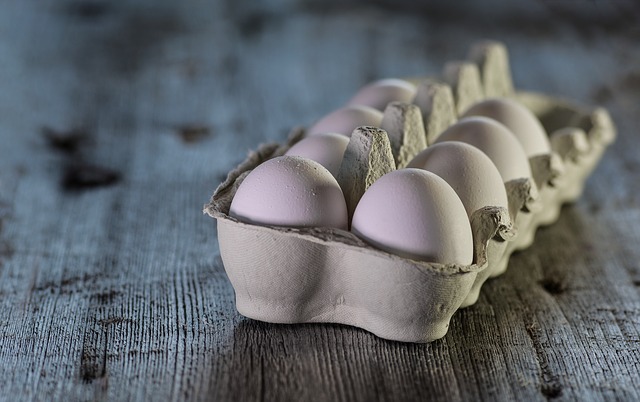
Preserving Eggs by Freezing
Clearly freezing eggs is a modern preservation method, as even in very cold climates a mid-winter thaw would spoil the whole batch before modern refrigeration. But, since the vast majority of households have at least one freezer (if not several with a chest freezer in the basement or garage), we might as well make use of freezing eggs as a preservation option. There are a number of ways to go about it, and some work better than others.
Freezing Raw Eggs
Obviously, this is a more modern solution to an age-old problem. Freezers haven’t always been around, but now that they’re here we might as well put them to good use. Eggs freeze pretty well and can be stored for months frozen.
When freezing eggs, you have a few different options. You can put up whole eggs, or store the yolks and whites separately. However you do it, they store best scrambled. Once thawed, it takes 3 tablespoons of scrambled egg mix to equal one fresh egg.
Frozen eggs work best in baking, where you won’t notice changes in texture brought on by freezing. A pinch of salt (or sugar) will improve the texture of the eggs once they’re defrosted, but it only helps a little. I personally can’t stand the taste of frozen eggs, and I won’t have them as a part of my breakfast. Others don’t seem to mind.
Either way, frozen eggs are a great solution for holiday baking, as a previously frozen egg bakes up just the same in cookies or cakes. If you’re looking for a no-fuss method, here’s the absolute easiest method for freezing eggs I’ve seen yet.
Freezing Cooked Eggs
If you’ve ever come across frozen microwavable breakfast sandwiches in a convenience store, that’s pretty much what’s going on here. You fry an egg, or bake it up in a muffin pan so it’s round and sandwich sized, then freeze it. You can even prepare them ahead of time into sandwiches with sausage and an English muffin. I’m not going to lie, they’re nothing like a fresh egg, but thousands of people eat these things each and every day.
Not my cup of tea, but who am I to judge? Freeze up ready-made cooked eggs and they will keep for many months.
Freezing Eggs in Baked Goods
This third method of freezing eggs works the best in my opinion. Try making an egg-heavy baked good, and then freeze that. Pound cake freezes amazingly well and comes out tasting about as good as it did when it went into the freezer. The main problem with this method is you can only eat so many baked goods. A pound cake a month is as much as my family reasonably can (and should) eat.
Other egg heavy baked goods like brownies or flourless chocolate cake have the same problem. They take a boatload of eggs off your hands, but they give you the problem of a giant pile of calorie bombs waiting in your freezer. The best option I’ve found to date is a combination of challah dinner rolls (yolks) and simple three-ingredient coconut macaroons with dried coconut, honey, and whipped egg whites. Both are low sugar, tasty and filling, and best yet if you make both they’ll use up whole eggs.
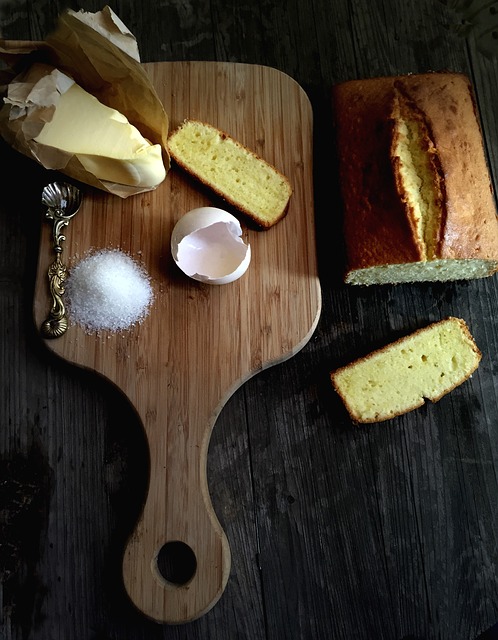
Preserving Eggs by Dehydration
Dehydrating foods will dramatically extend their shelf life regardless of the type of food. It works well for meat in the form of jerky, and it also will help preserve eggs. That said, it can be tricky to dehydrate eggs at home successfully.
Dehydrating Eggs
We use dried egg powder in our homemade just add water pancake mix and just add water biscuit mix. It’s a shelf stable egg that comes in really handy when you realize halfway through a recipe that you’re out of fresh eggs. Dehydrating eggs at home it a bit tricky though.
In a commercial setting, egg whites are actually fermented first, to remove any stray sugars that can discolor or spoil the eggs while they’re dehydrating. Dehydrating eggs at home often results in greasy, grainy egg chunks that just won’t rehydrate right. The Prarie Homestead tried a few different methods, and all resulted in eggs that were technically edible, but downright horrible.
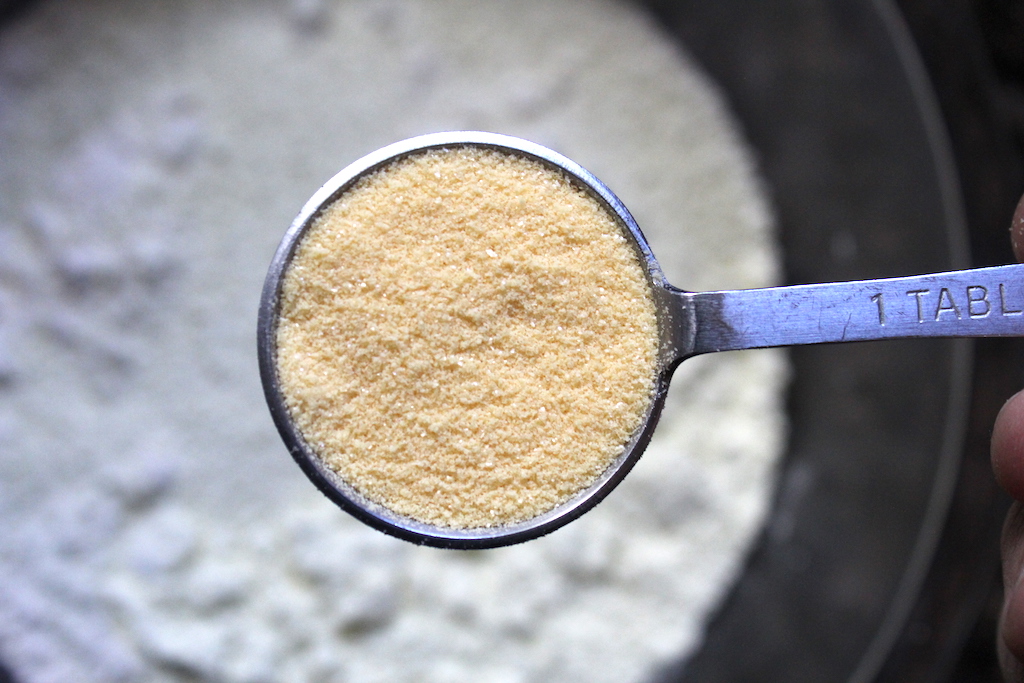
Freeze-Dried Eggs
There’s a big difference between dehydrating and freeze drying. The freeze drying process protects both flavor and texture, and it’s a much better option for preserving eggs. Mountain house sells packs of freeze-dried eggs that campers love, and they’ll keep for 30 plus years at room temperature.
The trick is, to freeze dry something at home, you need a home freeze dryer. They’re pretty expensive, at least compared to other food preservation methods, but you can preserve almost anything in them.
You can literally stuff a whole cheesecake in one, and it’ll be preserved and tasty for decades.
If you’re curious, I’d encourage you to read about how freeze dryers work.
Dried Egg Pasta
Pasta is a simple, shelf stable way to preserve eggs. I make a 7 egg yolk pasta recipe (from 6 yolks and one whole egg) that comes together really easily and tastes great. I have my grandmothers hand crank pasta machine, but you can also make it my repeatedly rolling it out on the counter with a rolling pin.
Once the pasta is made, it can be hung to dry and then stored in the pantry. Be careful in humid areas, I’ve had the drying pasta mold on very humid days during drying. This technique works best in dry climates or with the use of an oven or dehydrator the dry out the pasta.
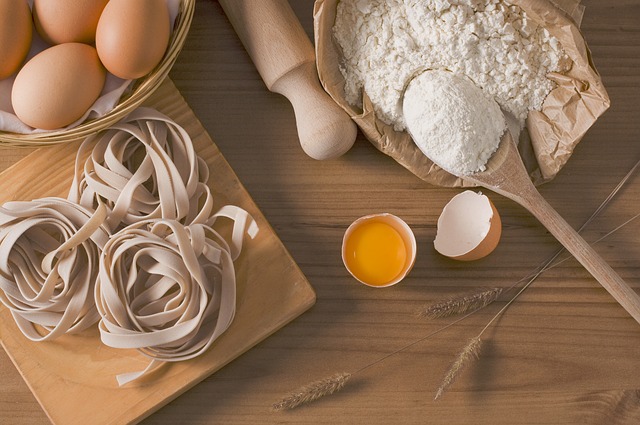
Fermented or Salt Cured Eggs
As the famous foodie author Sandor Ellix Katz would say, “You can ferment just about anything.” Eggs are no exception.
Fermentation is an age-old preservation technique that gives us all manner of foods from yogurt and sauerkraut, to salami and beer. While many people these days associate “fermenting” with spoiling, it’s actually just the opposite. Create the right conditions and natural lactic acid bacteria will thrive, preventing spoilage bacteria from taking hold.
Fermented Eggs
Salt cured eggs, believe it or not, are actually a form of a fermented egg. The salt inhibits spoiling bacteria but allows lactic acid bacteria to thrive. It’s the same process to make a salt-cured ham, and the result is full of lactic acid bacteria, the same little microbes found in yogurt or sauerkraut.
Whole eggs can be preserved similarly, by first hard boiling them and then fermenting them as a natural probiotic pickle. Whole hardboiled eggs can be fermented in a salt brine along with a bit of starter, namely sauerkraut juice or whey.
Fermented eggs are allowed to culture on the counter in a jar of brine and starter for about 3 days before being placed in the fridge. The cooler temperatures in the refrigerator slow the lactic acid bacteria considerably, but they’ll still be slowly culturing even under cold temperatures.
You can also just preserve eggs in sauerkraut directly by placing peeled hard boiling eggs directly into a jar of sauerkraut. In theory, cultured eggs in brine or in sauerkraut should keep for some time in the fridge, but every source I’ve read says to try to eat them within 2 weeks.
Salt Preserved Egg Yolks
While the historical technique of preserving whole eggs in salt may be a bust, cracking the eggs open and just preserving the yolks is delicious. Salt-preserved egg yolks are really simple to make at home, and the resulting cured yolk can be used just like parmesan cheese. Grate a little over the top of pasta for a tasty bite of umami.
Egg yolks cured in a mixture of half salt and half sugar have a sweet/salty kick, and are particularly great as a dessert topping.
Here’s how to make salt-cured egg yolks at home with just a few simple ingredients. A similar cultured egg can be made by placing the yolks in miso to culture, though the resulting flavor is quite different.
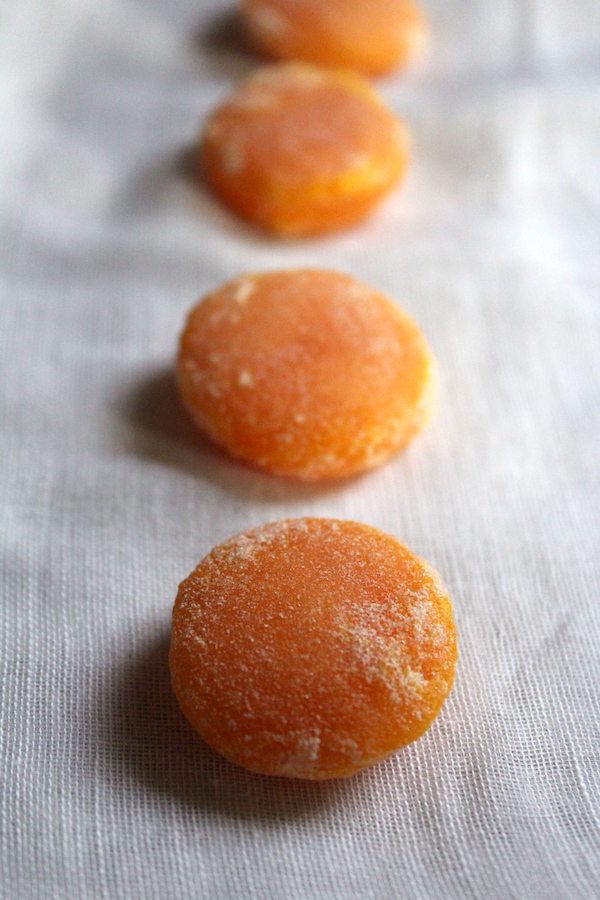
Chinese Salt Preserved Eggs (Whole Raw Eggs)
Packing eggs in salt water is a traditional preservation method used in China and other Eastern countries. The resulting egg is changed considerably, and that’s more or less the goal. Salt-preserved eggs are used in traditional recipes like mooncakes. Once the raw whole eggs are removed from the salt water, they can be hard boiled and served as the traditional accompaniment for congee (a rice porridge).
The consistency of the yolk changes and the color becomes bright orange.
I found a number of different ways to make Chinese “salty eggs,” each claiming to be the best way. Here’s they are:
- Packing Whole Raw Eggs in Saltwater – The eggs are just put into a jar filled with salt water to cure and preserve.
- Dry Salting Technique – First dip the eggs in rice wine and then coat them in salt before wrapping each one in plastic wrap to prevent evaporation.
- Charcoal Coated Technique – The eggs are coated in a paste made from salt and wet clay, and then rolled in dusted charcoal before curing. This to me is the most convincing as a “traditional” technique.
Though salt preserved eggs are a delicacy in China, they may not measure up to American palates. Researchers in the early 1900s tried this technique, and clearly, they were expecting the eggs to come out unchanged by the salt water. They tried to cook them as you would a regular egg and were disappointed. They noted that “Of those preserved in salt water all were unpalatable, as the salt had penetrated the eggs. (Source)”
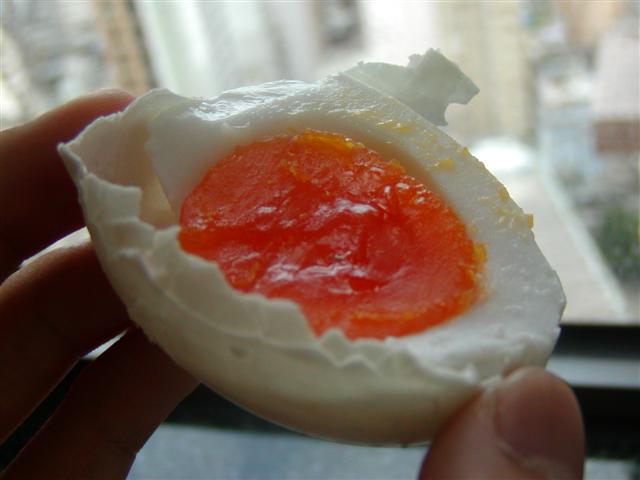
Thousand Year Eggs
Another traditional method using wood ash is thousand-year eggs, a traditional recipe from Asia. While thousand-year eggs do technically “preserve” the nutritional content of eggs, the thing that comes out the other end hardly resembles an egg. They’re a good option if you want to try out some weird cuisine, or you’re a survivalist just hoping to preserve the calories for later. (Ideally, you’d have found some way to lose your sense of taste before you really needed to eat them.)
According to an old foods science textbook, thousand-year eggs are made by “coating duck or chicken eggs in a paste of clay, wood ash, tea, lime, and salt, then burying them – separated by rice straw to stop them from sticking together – for a mere 100 days or so. The resultant egg, once you have washed off the foul-smelling gunk and peeled and sliced it, has a grey-green yolk and a dark, translucent, bottle green ‘white’.”
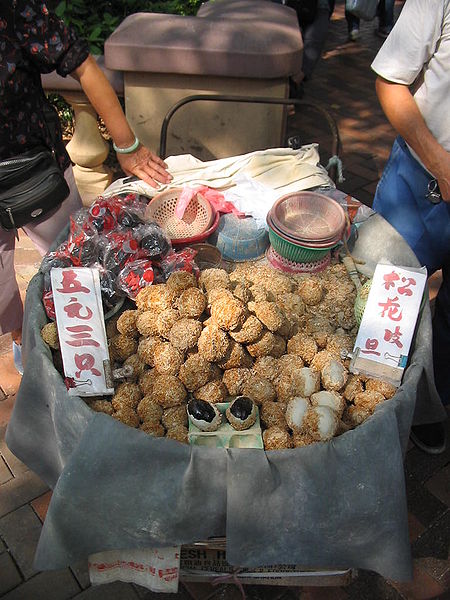
Egg White Yogurt (Eggert)
Another new age food product, like astronaut ice cream, “eggurt” is just coming onto the market. It all started with a Ph.D. research paper in the early 1980s, and now that everyone’s getting into more extreme fad diets, it seemed like a good time to release yet another strange food product. Egg whites are first pasteurized and then they’re cultured into an egg white yogurt. The idea is to make a dairy-free yogurt substitute, and the results are promising. While many preservation methods only make use of the yolks, this method stands out as a way to use up egg whites.
You can make your own egg white yogurt simply by culturing egg whites. Use farm fresh eggs from your own hens, and maybe pasteurize them for extra safety. While cultured egg whites are preserved for a time, they’ll only keep about as long as yogurt does.
Preserving Eggs in Alcohol
A few years back my aunt came back from a holiday party with a special gift. It was a canning jar full of yellow liquid and she was ecstatic. A friend had given her homemade egg liqueur. She opened up the jar and served out a few small glasses of thick creamy yellow liquid, before capping it up and proudly plopping it down on her liqueur shelf.
I gave her a sideways look and asked, “You’re just going to leave it there? It has eggs in it!” She looked at me like I had two heads. “Of course, it’s fine!” she said. “It’s preserved with the alcohol.”
That jar sat up there for weeks until it was all drunk up, and it didn’t spoil. I’m not sure of the recipe, but many different cultures have their own version of egg liqueur. The only reference I can find to a type of homemade shelf stable egg liqueur is on a site called Boston Apothecary, says that egg yolk liqueurs will keep so long as they’re at least 25% alcohol. Whether or not this is true in practice I couldn’t say.
My mom’s side of the family is from Argentina, and during the holidays they’d drink an egg liqueur called Rompope. It was sold commercially, and I always assumed it had some kind of chemical preservative added to make it shelf stable. But maybe not?
The Germans have an egg liqueur called Eierlikör, which is made with sugar, egg yolks, condensed milk, and rum. Recipes I’ve found say it keeps in the fridge for about 3 months. Similarly, the Dutch have Advocaat.
And then there’s always aged eggnog, which can keep a surprisingly long time. Michael Ruhlman, the author of one of my favorite charcuterie books, has a recipe for aged eggnog that he says needs to age for at least a month, but that he’s drunk at over a year old.
The recipe calls for 12 egg yolks, a bit of milk and cream, then a truly absurd amount of alcohol.
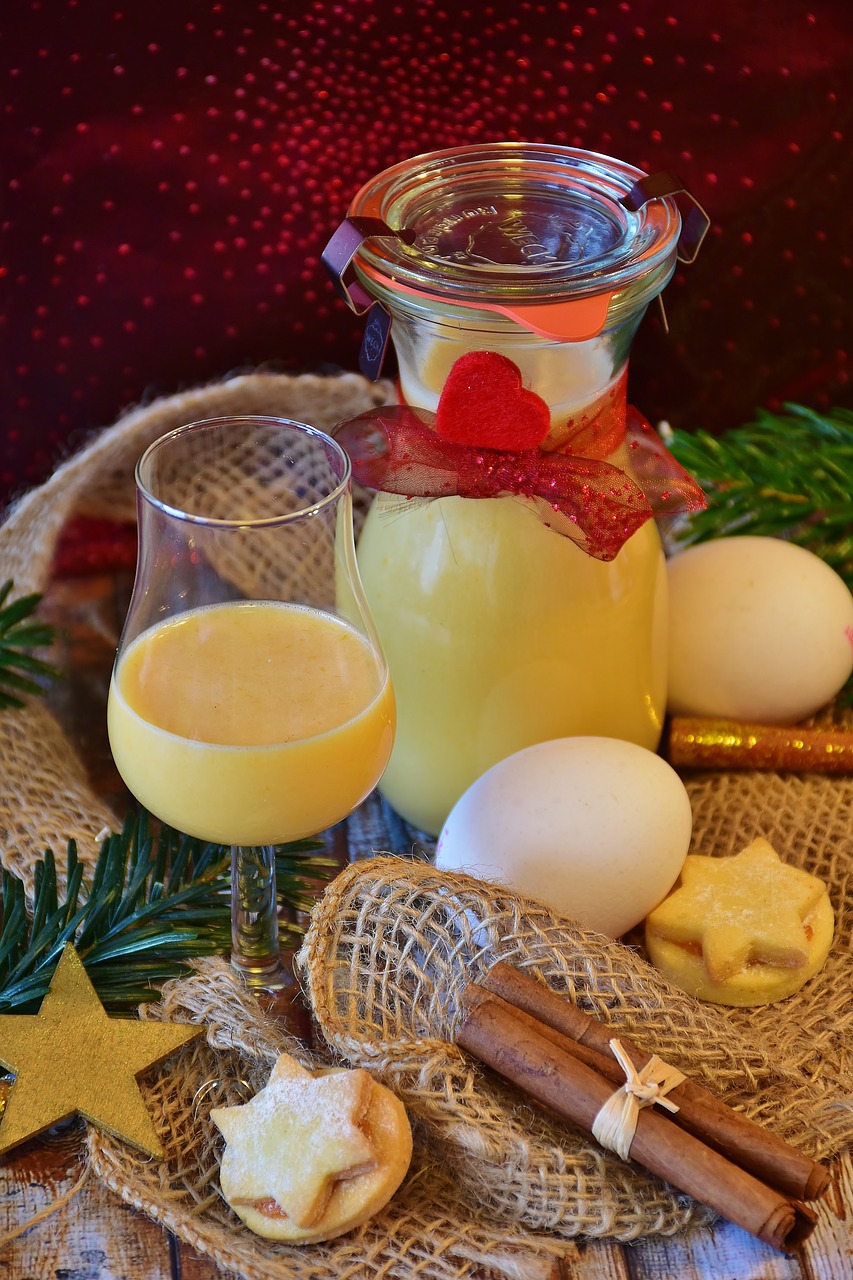
Preserving Eggs By Pickling or Canning
Pickling and canning are a great solution for most types of farm produce, but they aren’t particularly effective for eggs in the long term. Pickled eggs cannot be safely canned, so they only preserve eggs for about 4 months.
Similarly, canned goods containing eggs, such as lemon curd, degrade rapidly and will only buy you 3-4 months of preservation time.
Pickled Eggs
Pickling eggs in vinegar will preserve them for a time, but they’re still best kept in the refrigerator. While grandma may have canned pickled eggs, she was lucky no one got botulism as a result. Botulism spores have to be present for an infection to take hold, and if you’ve eaten canned pickled eggs without issue that’s a matter of luck. Still, spin that roulette wheel enough times and you’re bound to be unlucky.
It can take a while for the vinegar to penetrate the egg, and even still the resulting environment all the way at the center may not be acidic enough to inhibit botulism spores. Combine that with an anaerobic environment inside a canning jar and you’ve got a recipe for trouble. People have died from eating canned pickled eggs, and just because some are lucky and eat them without issue is no reason to chance it.
To make pickled eggs, start by hard boiling and peeling whole eggs. Pack them into a jar and cover with a brine made from a ratio of 1 cup of vinegar to 1 tsp of salt. Add spices of your choice and allow the flavors to infuse for at least 1-2 weeks before eating.
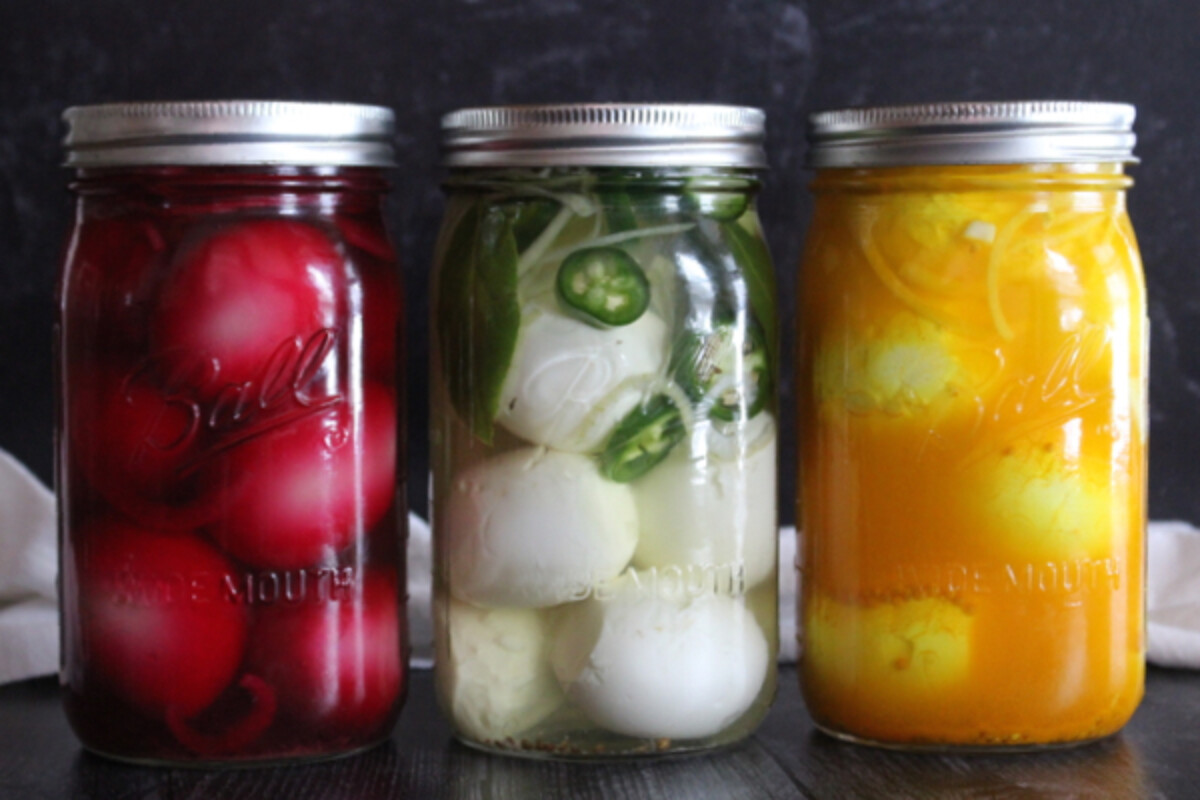
Here are a few pickled egg recipes to try for more variation.
Pickled eggs can keep for up to 4 months in the refrigerator. If you have tiny eggs, the flavors infuse better, and pickled quail eggs are particularly tasty.
For a really lovely traditional recipe from the 18th century, this video below takes you through the basics. Note that even in this old school recipe, the eggs would have been kept in a spring house or somewhere cold to keep them preserved.
Preserving Eggs in Canned Lemon Curd
A small batch of homemade lemon curd requires 7 egg yolks plus 4 whole eggs. That yields roughly 3 to 4 half-pint jars of lemon curd, which is normally quite perishable and needs to be used pretty quickly…unless you can it.
I know, I just told you canning pickled eggs isn’t safe. So if you cant can pickled hard-boiled eggs, why is canning lemon curd at home perfectly safe? Canning eggs in the form of lemon curd is different, and let me tell you why.
In lemon curd, whole eggs are beaten with sugar and lemon juice in a double boiler and then canned starting at a low temperature (around 180 degrees). The canner is then slowly brought up to a boil so that the lemon curd doesn’t curdle inside the jars.
Thought of in a different way, lemon curd is basically pickled scrambled eggs, acidified with a lot of lemon juice and then sweetened. Since the acid source is beaten into the eggs, rather than just poured around a hard-boiled egg, it’s able to completely penetrate every bit.
Home-canned lemon curd (or lime curd) will keep at room temperature for up to a year, but the quality is better within the first 3-4 months. If you intend to keep it longer, lemon curd does better when stored in the freezer as opposed to canned.
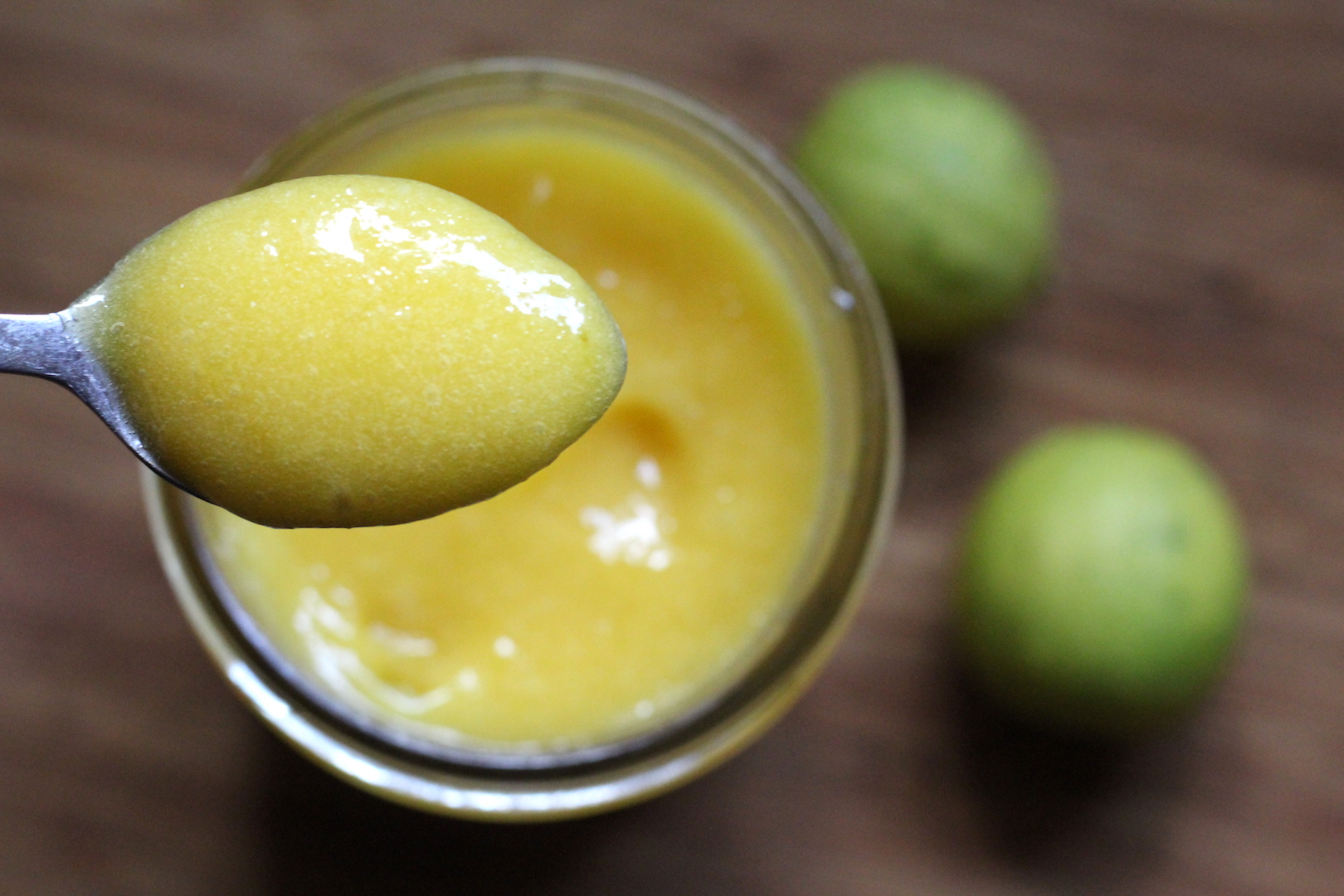
Old Time Homestead Egg Preservation Methods
There’s a long history of people striking out on their own to start a homestead. These methods all keep eggs fresh for longer than just setting them on your counter, but some are more a historical novelty than a practical solution to modern egg preservation.
Mineral Oil Coated Eggs
Similar to unwashed root cellared eggs, some suggest coating each egg in mineral oil to bolster the eggs natural coating. It only takes about 1 tablespoon of mineral oil to preserve a dozen eggs. Simply smear a bit on the outside of each one and put them back in the carton.
According to one source, eggs preserved in mineral oil will keep for 3 months on the counter, 6 to 9 months in a cool dark place or up to a year in the refrigerator. Other sources say that this technique only works with eggs oiled within 24 hours of being laid, and that they’ll develop off flavors after a few months.
Mineral oil, in particular, works well because it doesn’t go rancid like other oils. It’s not exactly something you can harvest on your own though…
Preserving Eggs with Butter or Lard
Instead of using mineral oil, old-time home economics books suggest rubbing them with butter or lard. While it will go rancid eventually, the butter keeps on the outside of the egg to help preserve them in a cool spot for many months. Since it’s butter rather than mineral oil, it’s less likely to give strange off flavors to the egg inside.
The New England Economical Housekeeper has instructions for preserving eggs in salt as a note tucked between instructions for taking grease spots out of silk and a recipe for making a cold starch for linens. “To Preserve Eggs. If you take the eggs as soon as the hen has laid them, and smear the shells with lard or butter, they will keep as good as new laid eggs for some time.”
Preserving Eggs with Vaseline
Coating eggs in vaseline was one of the methods on trial in that 1897 consumer reports article, and the study noted that all the eggs preserved and none went rotten. A 100% success rate is great, but there were some side effects. “Those coated with vaseline kept well but absorbed a very undesirable flavor of vaseline. (source)”
Yum…vaseline flavored eggs. I’ll take a small loss rate and stick with butter or lard instead. There’s also a vaseline like substance called “eggkeep” that was marketed in the 1940s. It apparently had the same effect, but without the off-flavors that vaseline imparts. It’s no longer available, and I haven’t been able to find any information about it other than it was “vaseline like.”
Water Glass Eggs
Waterglassing is a way to seal eggs in their shell for long-term preservation. A solution of sodium silicate is poured over the top of the eggs in an earthenware crock and they’re left submerged until needed.
According to Lehmans Supply, which sells sodium silicate for waterglassing eggs: “Only use fresh eggs which have been wiped clean, but not washed. Mix eleven parts water with one part water glass in an earthenware crock. Place eggs in solution leaving about two inches of liquid above the eggs. One quart of water glass will treat about 16 dozen eggs.”
Old-timers say that waterglassing can preserve eggs almost indefinitely, and countless online sources say that this is one of the most foolproof ways to preserve eggs. The problem with waterglassing eggs is they’re just not the same when they come out. Sure, they didn’t spoil, but they’re not quite the same as fresh eggs either.
According to Stocking Up, an old-time preservation manual, waterglass eggs “are not good for boiling because their shells become very soft in the waterglass solution. The whites will not become stiff and form stiff peaks, no matter how long they’re beaten. No souffles, eggnogs, or meringues can be made from waterglassed eggs. There is also a very good possibility that by consuming eggs stored in waterglass you would be consuming some of the undesirable chemical, sodium silicate.”
Furthermore, waterglassing doesn’t work well with fertilized eggs. As Stocking up notes, “If you keep roosters with your hens, waterglassing may not be a successful means of preservation for you. The life factor in fertilized eggs makes these eggs deteriorate more quickly than sterile, unfertilized eggs, and waterglassing may not be enough of a preventative against spoilage.”
Preserving Eggs in Lime
Preserving eggs in lime water doesn’t actually “pickle” them or have anything to do with limes. The lime is a mineral the seals the pores on the eggs and keeps them from spoiling.
Slack lime or lime hydrated with water to create “lime water” was one of the better ways to preserve eggs historically. You can still buy slacked lime in sacks at building supply stores, but it’s actually the same as food grade pickling lime and that’s much easier to source.
Start by creating saturated limewater by mixing 1/2 pound of lime with 1 gallon of water. A pamphlet from the Utah Agricultural Experiment Station from 1914 describes the process:
‘The method of preparation is simply to slack the lime with a small quantity of water then stir the milk of lime so formed… After the mixture has been kept well stirred for a few hours it is allowed to settle. The supernatant liquid, which is now saturated lime, water is drawn off and poured over the eggs previously placed in a crock or water-tight barrel. As exposure to the air tends to precipitate the lime (as carbonate ) and thus weaken the solution, the vessel containing the eggs should be kept covered. The air may be excluded by a covering of sweet 0il… If after a time there is any noticeable precipitation of the lime, the lime water should be drawn off and replaced.”
According to the pamphlet, limewater was one of the very best methods discovered to date. The eggs were of good quality after storage, and it’s relatively easy to do at home. The lime is also inexpensive, making the process practical and economical.
If you’re a historical preservation nerd, you may have seen this video on 6 ways to preserve eggs. They tested a number of methods and preserving in lime was by far the best.
Preserving Eggs in Isinglass
A jelly-like substance obtained from the swim bladders of fish, isinglass works like a sealant to keep the eggs from spoiling.
I came across a quote attributed to the book A Greener Life which describes the process for using Isinglass to preserve eggs:
“When I was a child we used to store eggs in isinglass, which can be bought from a good pharmacist. The eggs are layered point down in an earthenware crock or glass jar. You pour over the cooled liquid, ensuring the top layer of eggs is completely submerged, and then cover to keep out bugs and dirt and to prevent evaporation. Eggs stored like this will keep from six months to a year, but they should be used for baking or made dishes as they have a slight taste if boiled or poached and the shells will crack if boiled. After six months the whites go a little thin so they are not really suitable for whipping.”
Preserving Eggs in Peat Moss
Peat moss is naturally acidic, and that acidity helps to preserve all manner of things in the peat bogs in Europe. There have been hundreds of discoveries of Bog butter, or ancient preserved butter found in peat bogs, some deposits were more than 1600 years old. From that perspective, it makes sense to try to preserve eggs in peat moss.
Storing eggs packed in dry peat moss does work to preserve them to some extent, but trials conducted in the early 1900s showed that around 20% of the eggs spoiled. There was no mention of off flavors in the eggs that kept, so it may be a good option to try.
Preserving Eggs in Wood Ash
Wood ash, the type you clean out of a wood stove, has literally dozens of fun uses. Eggs stored in wood ash keep pretty well, with loss rates only about 20% after 6 months and 40% spoilage after 8 months. That said, just because they didn’t go bad doesn’t mean they’re good as new.
One source notes that while eggs preserved in wood ash all stored quite well, and none were rotten, they had a stale taste.
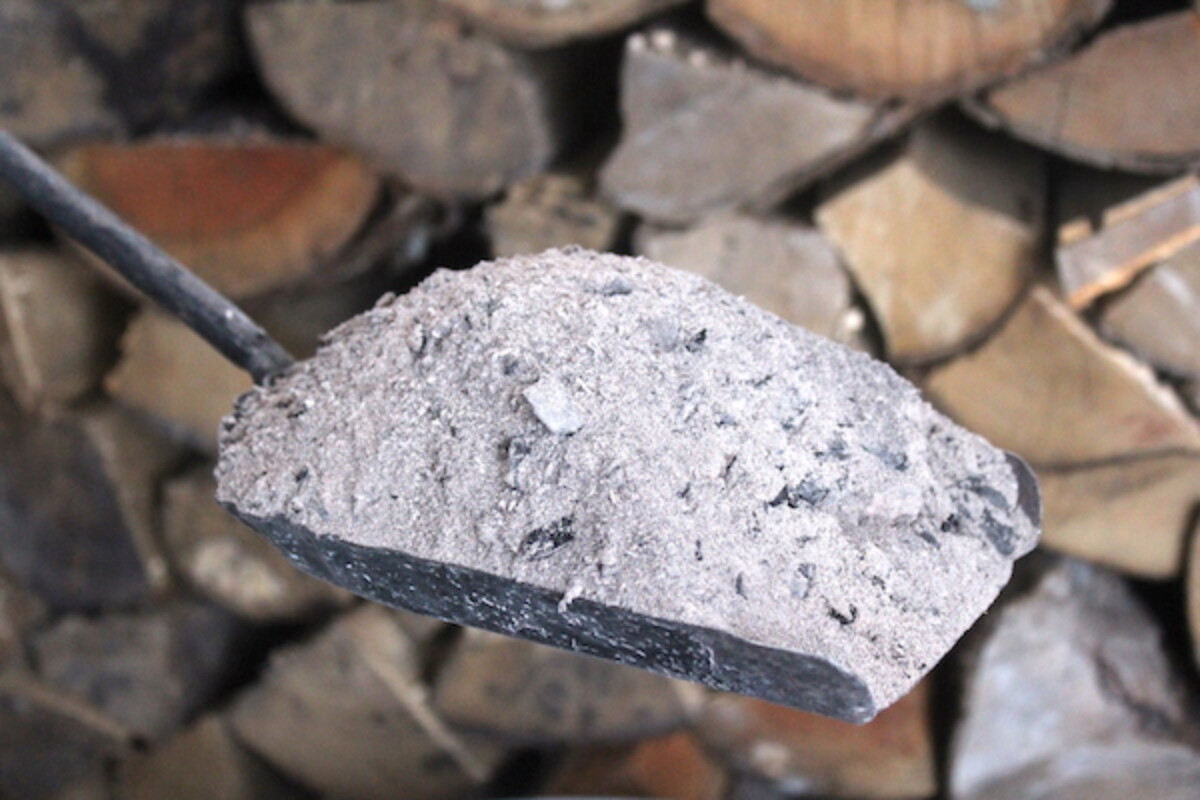
Preserving Eggs in Oats or Bran
While oats or oat bran does cushion the eggs to keep the eggs from breaking, it isn’t particularly effective in preserving high-quality eggs. “Salt, wood ashes, bran, oats, and other dry mixture do not prevent evaporation and the eggs thus lose in quality. (Source)”
Though their quality degrades over time, most of the eggs preserved in oats were still edible. One source suggests coating the eggs in beeswax before packing them in oats, which solves the dehydration problem.
Wax Preserved Eggs (Paraffin or Beeswax)
Similar to the methods listed above, coating eggs in wax aims to seal the pores and to prevent spoiling. Wax is going to seal them a bit more thoroughly than other oil-based substances, but it also requires substantially more work.
A newspaper from 1913 describes the process of preserving eggs in paraffin wax, “Dip fresh eggs, one at a time, in hot, melted paraffin, enough to cover the egg. Take out immediately with wire tongs made for that purpose of baling wire, let paraffin harden, and dip quickly again, reversing egg. Let cool. Wrap each egg separately in a waxed or paraffin paper. Wrap carefully so as rot to scratch or break the coating. Pack cold in tin fruit cans, and seal with paraffin, which excludes the air. Eggs so canned air-tight will keep several months, the paraffin having closed the pores in the shell. Keep in a cool place, and label can ‘ Handle with care.’ “
The writer at Hillside Homestead experimented with this in 2013, first dipping the eggs in beeswax and then packing them in oats (as padding). They noted that they stored really well that way, though after a few months they’re not particularly tasty scrambled or fried, and are best suited for baking. There’s no mention as to why they’re not tasty in fresh cooking (off flavors? texture change?), and perhaps I’ll have to test it to find out.
Preserving Whole Eggs in Salt
Packing whole eggs in salt is about as effective as oats or ashes. The eggs do not spoil, but they lose moisture due to evaporation. Surrounded eggs with a bed of salt sounds like it’d be more effective than just plain oats, but no luck. They will keep for longer than eggs left on the counter, but the quality degrades so much that it’s not worth it short of a last resort.
Other Old Homestead Immersion Methods
There are a lot of other things people tried to prevent eggs from spoiling, and most were met with very limited success. They all do keep eggs from spoiling for a time, but most are no more successful than salt, ash or oats. Historically, eggs were submerged in any of the following for preservation:
- Zinc
- Borax
- Cream of Tartar
- Potash
- Alum
- Salicylic Acid
- Glycerin
Theoretical Egg Preservation Methods
So beyond what’s been tested, I imagine there’s a number of other ways to preserve eggs that have yet to be tested. I hope to test out a few of these this year with some farm fresh eggs. Nothing like a fun new project to keep things interesting.
Egg Confit
A confit is an old French method of preservation that cooks something in fat at a low temperature for a long time, most famously a fatty bird like a duck. The duck is first salted heavily (often with curing salt) and then covered in its own rendered fat before a long cook in a low oven. The fat then cools over the meat, basically pasteurizing it and then sealing out pathogens. A properly prepared confit will keep unrefrigerated, but in a cool place, for several months.
My theory is that you can take eggs, namely egg yolks, and cook them in some type of animal lard for preservation. I’d like to try preserving duck egg yolks in rendered duck fat this coming spring.
Air Cured Egg Sausage
A second method I think might work is an air-cured egg sausage. Salt cured egg yolks are delicious, and they’re basically made in the same way as salt-cured meat. The whites would just run everywhere if you tried to cure them on a bed of salt like the yolks, but I think I have a solution. If you first packed egg whites in a sausage casing, it would contain the whites just like the yolk sack does. I’d then pack them in salt for a time before hanging them to dry.
It’s a theory?
Other Egg Preservation Methods?
I know, it’s a lot, but this can’t possibly be everything. It’s just everything I’ve found in my work as a devoted food preservation nerd. If you know of other methods, I would love to hear them. Leave me a note in the comments.
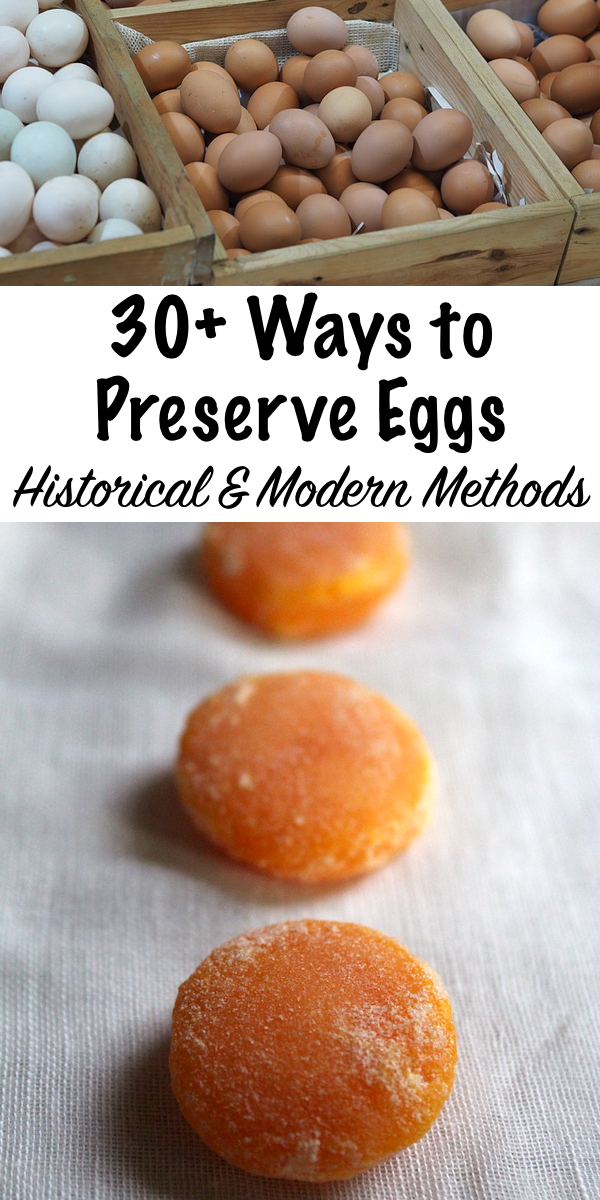
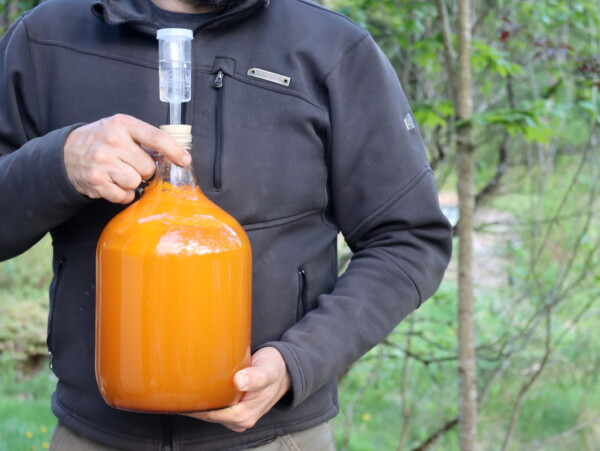
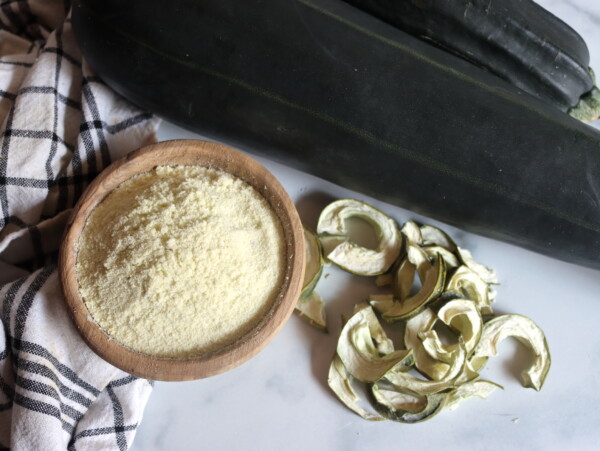
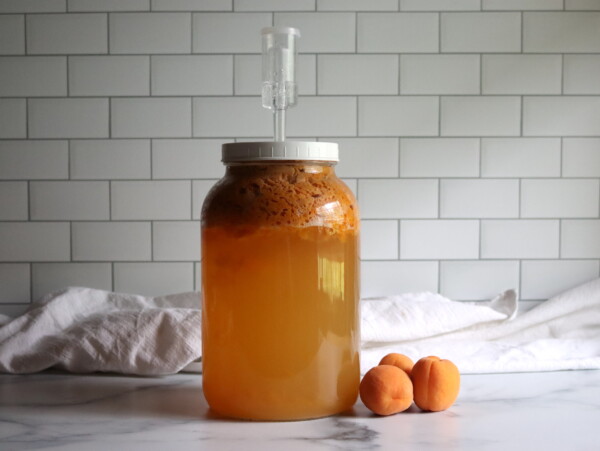
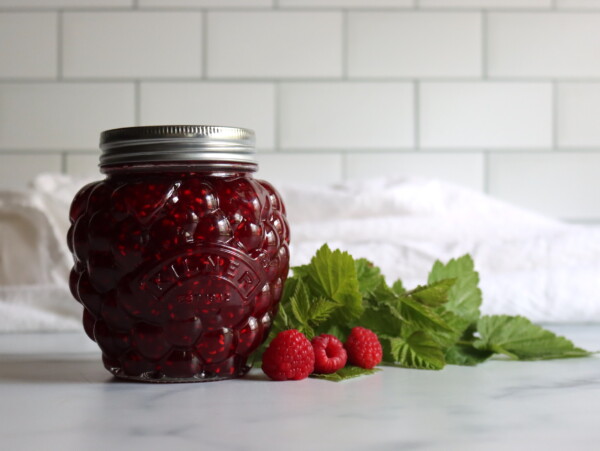





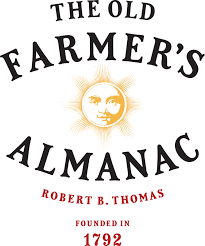




Very Tasty and delicious Recipe.
Thank you very much for providing this good information and also please try to provide other information in the same way
The mineral oil technique works well for me. Been using it for many years. I keep them in the refrigerator after oiling them and try to use them by 6 months. Good article. I’m going to add turning them at intervals.
Thanks for sharing. We’re glad you enjoyed the article.
Hi there! I read once in an old homesteading book that they would coat the eggs in mud, let the mud dry, then stack them in barrels in the cellar. I can’t recall how long they were supposed to last preserved this way, but I imagine it would work pretty well. I think it would seal the pores like waterglassing with lime does.